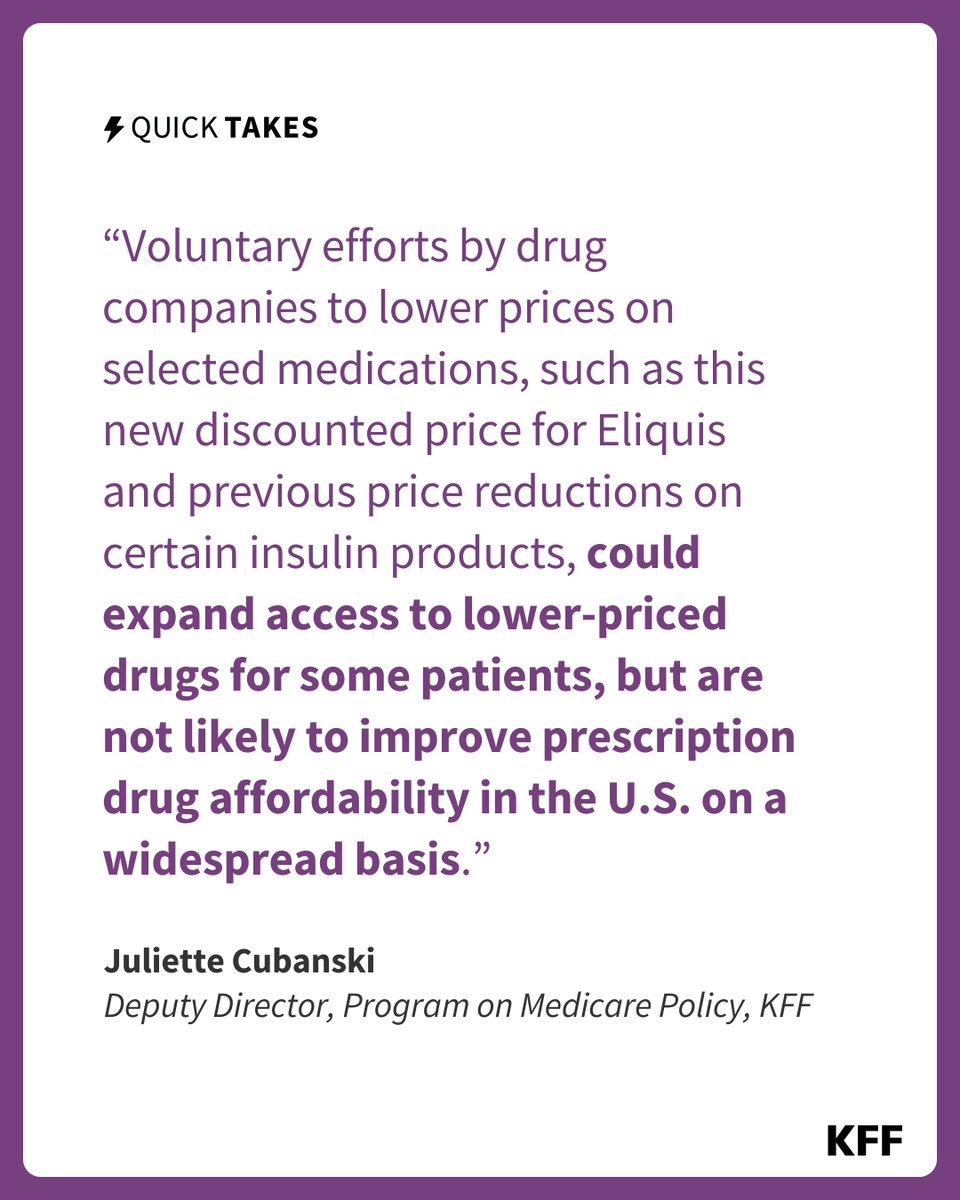
KFF
@KFF
The independent source for health policy research, polling, and news.
Our updated analysis brings together KFF’s most useful polling on the financial challenges Americans face in the health system — from skipping care to medical debt. Explore the data: on.kff.org/45btsuG
KFF’s updated look at Americans’ challenges with health care costs pulls together key data from our polling — including new insights from our May poll. Read the full issue brief: on.kff.org/45btsuG
⚡ KFF’s Lunna Lopes explores how medical debt affects consumers, an issue back in the news after a recent court decision blocked a federal rule that would have stopped medical debt from being included in people’s credit reports. #QuickTake on.kff.org/4lN5zzy
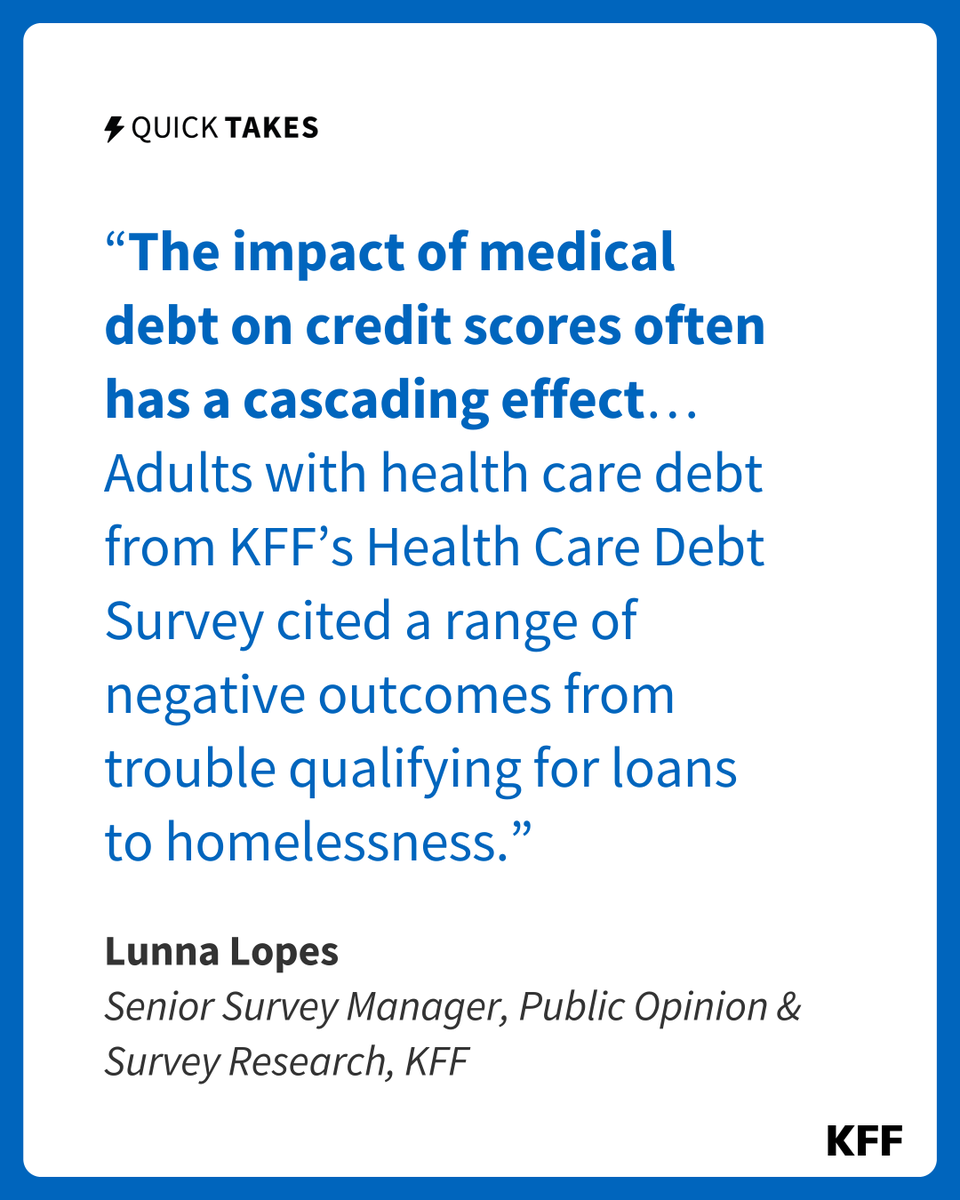
⚡ KFF’s Laurie Sobel explains what’s happening in a case brought by Planned Parenthood challenging the ban on federal Medicaid payments to certain abortion providers. #QuickTake on.kff.org/3H2nFOR
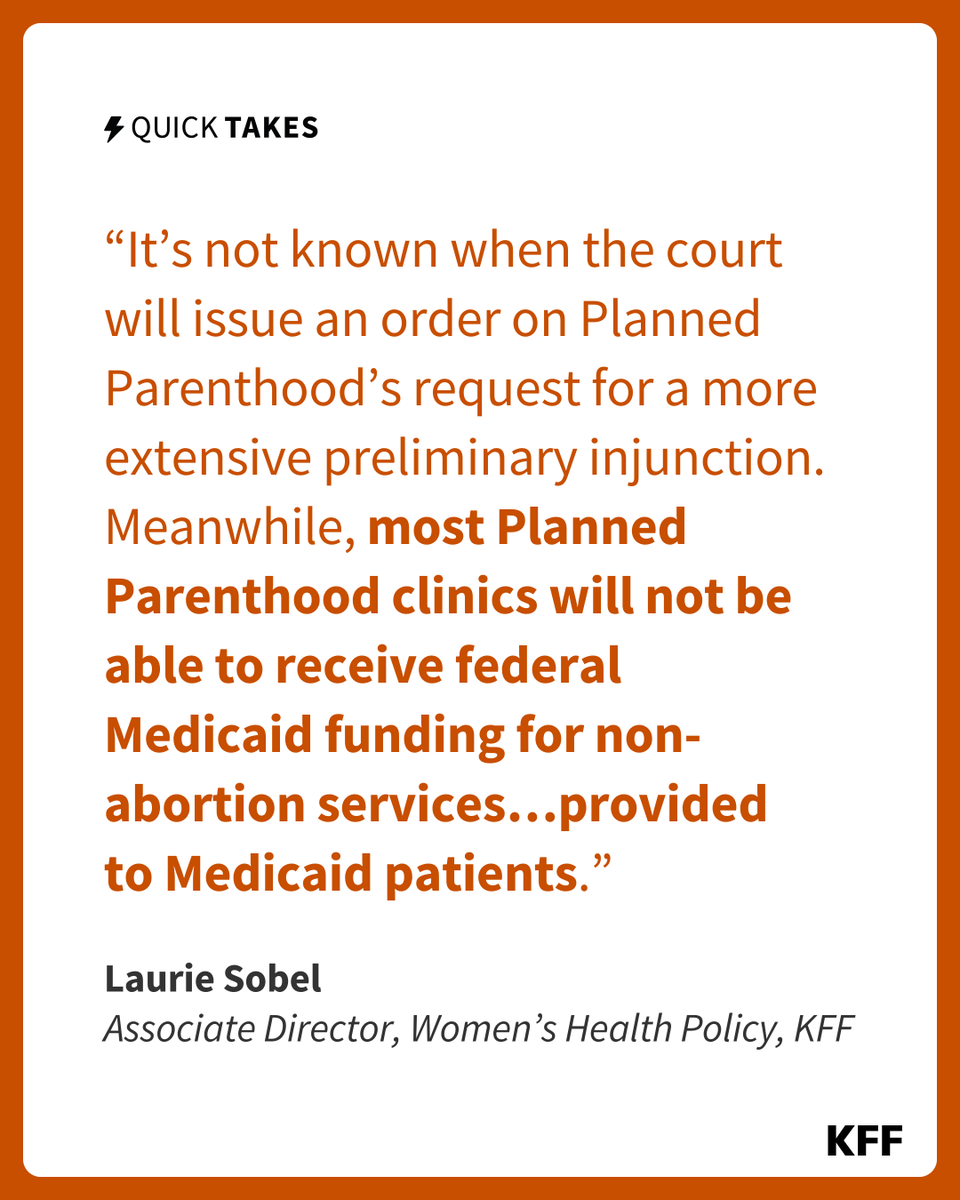
CBO now says there will be 10m more uninsured from the “OBBB”. But the estimate of 4.2m uninsured from the enhanced ACA tax credits expiring at the end of the year stands. So we are looking at 14+ million more uninsured over 10 yrs unless that changes.
KFF polling offers a clear look at the financial pressures Americans face in the health system, from delaying care to medical debt. Our updated analysis brings the most useful findings into one place: on.kff.org/45btsuG
ACA Marketplace insurers cite several policy changes that they expect to drive up rates next year, including: ⌛ Expiration of enhanced premium tax credits 📈 Impact of tariffs on some drugs, medical equipment, and supplies Details in our analysis: on.kff.org/3TIMVwq
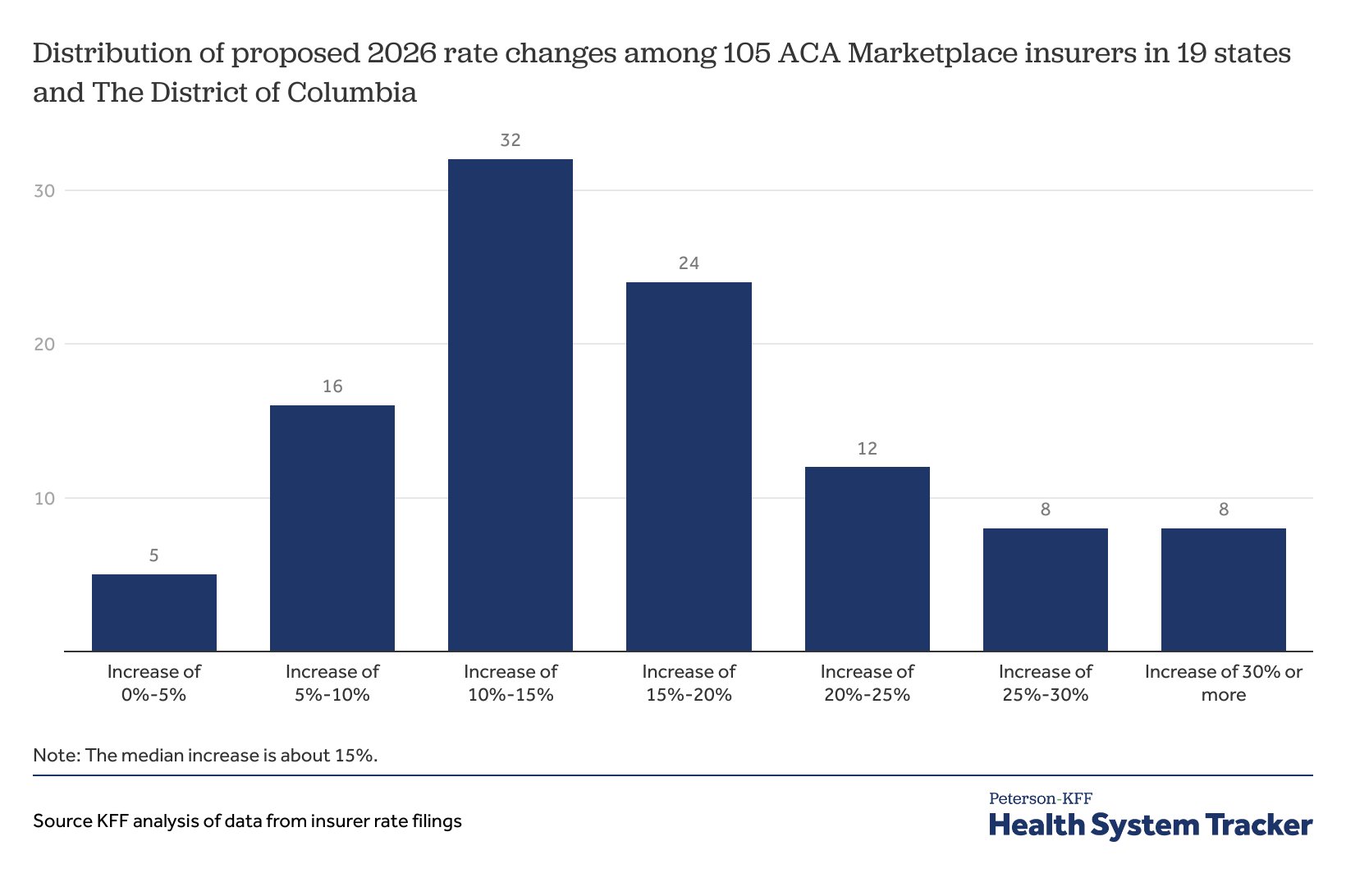
Updated: CBO estimates that P.L. 119-21 ("Big Beautiful Bill") will increase by 10 million the number of people without health insurance in 2034. cbo.gov/publication/61…
The Trump admin has reversed several actions by prior administrations to address climate change and extreme heat — rollbacks that may contribute to worse health outcomes and disproportionately affect people with low incomes, people of color and immigrants. on.kff.org/44Mt3ip
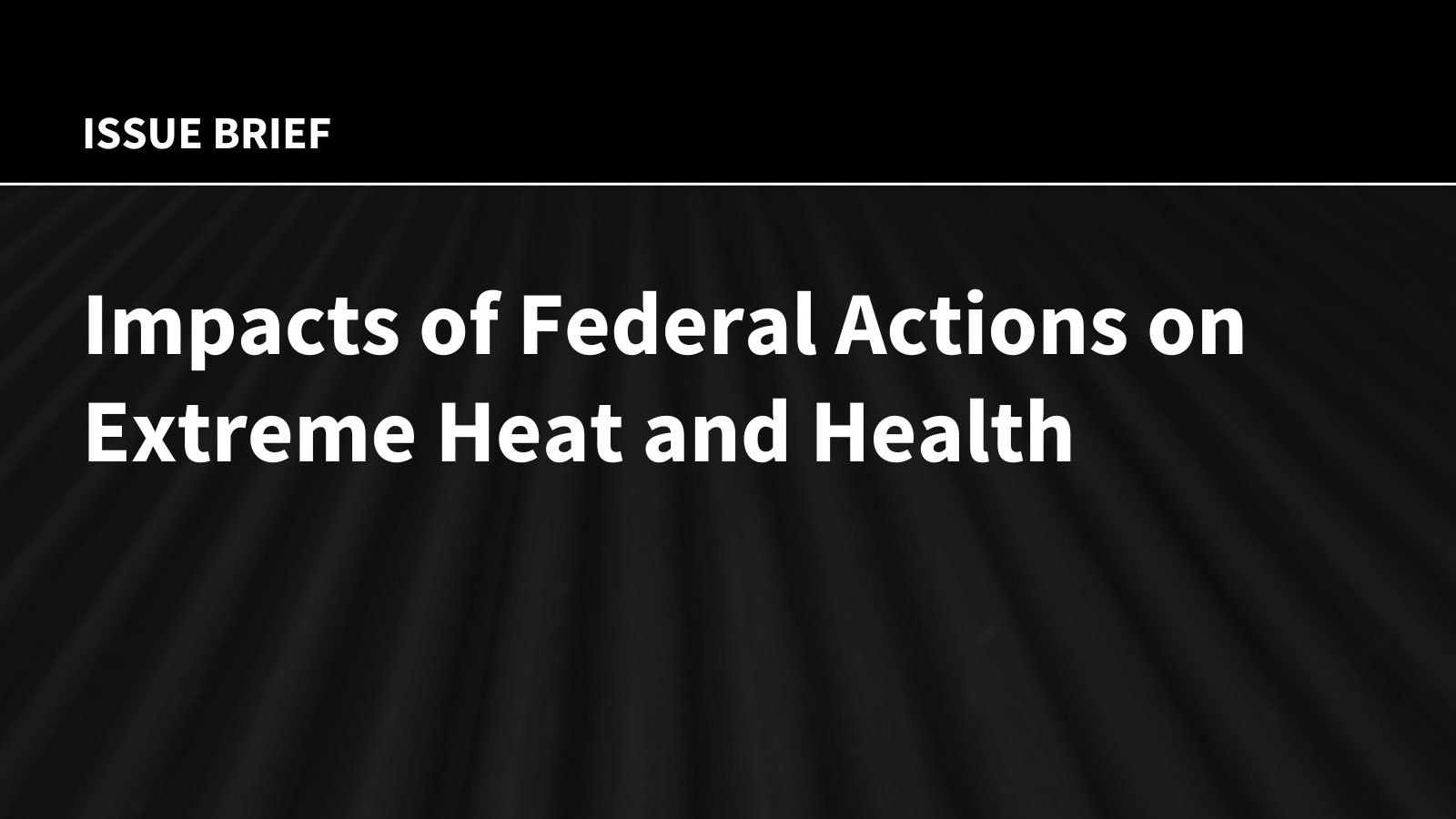
Across 105 ACA Marketplace insurers in 19 states and D.C. that have submitted rate filings so far, most are requesting increases of 10% to 20% for 2026. More than a quarter are proposing premium increases of 20% or more: on.kff.org/3TIMVwq
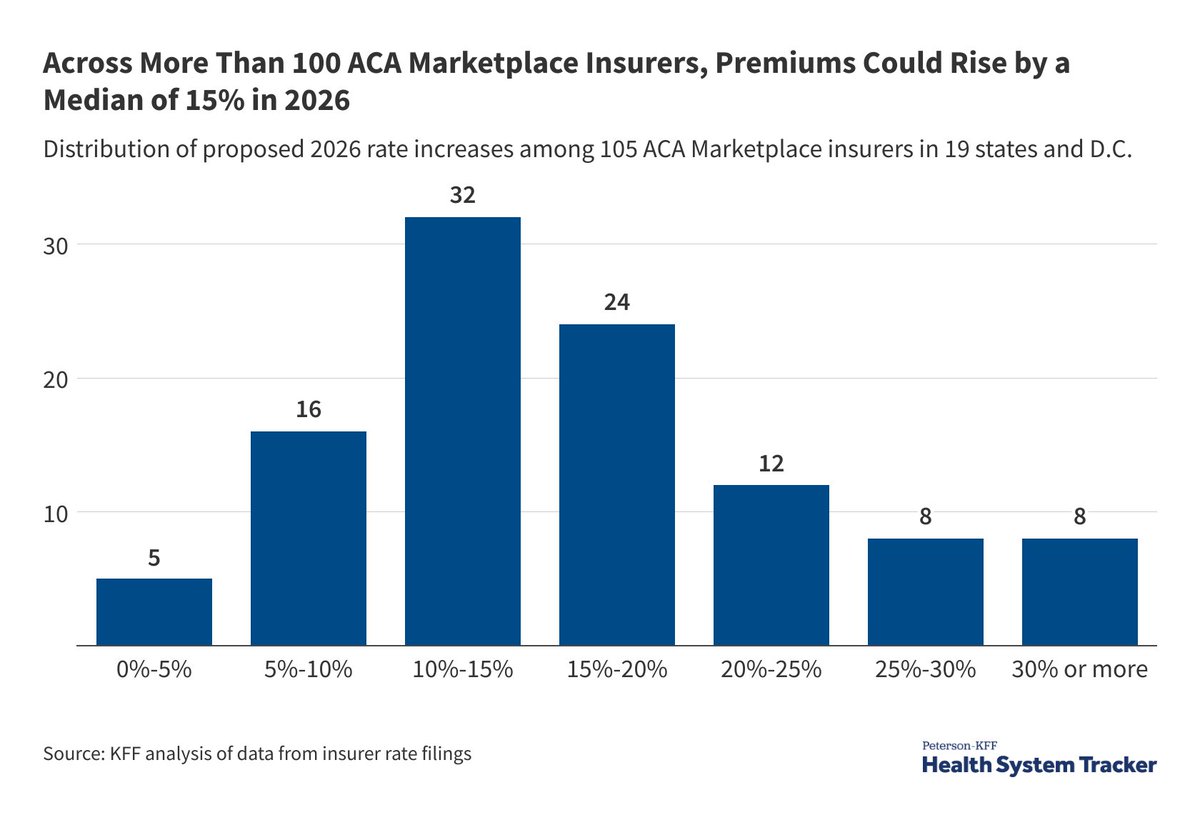
Part D enrollment is highly concentrated, with 5 firms covering 73.5% of all enrollees in 2025, or 40.2 million out of 54.8 million. Nearly 1 in 4 enrollees are in plans sponsored by UnitedHealth; CVS, Humana, & Centene each have about 15% of the market. on.kff.org/456Z5pc
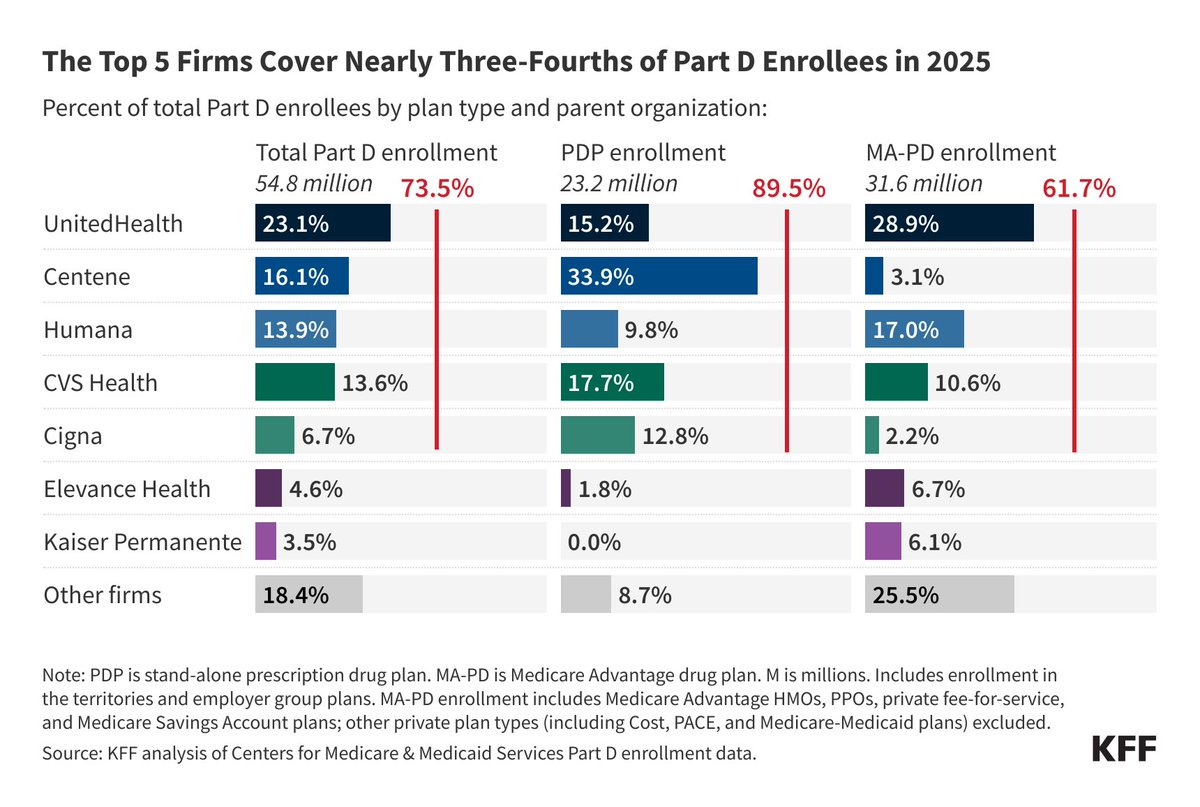
A new analysis of early rate filings shows ACA Marketplace insurers are proposing a median premium increase of 15% for 2026. This would be the largest hike in premiums since 2018 — the last time policy uncertainty contributed to sharp premium growth. on.kff.org/3TIMVwq
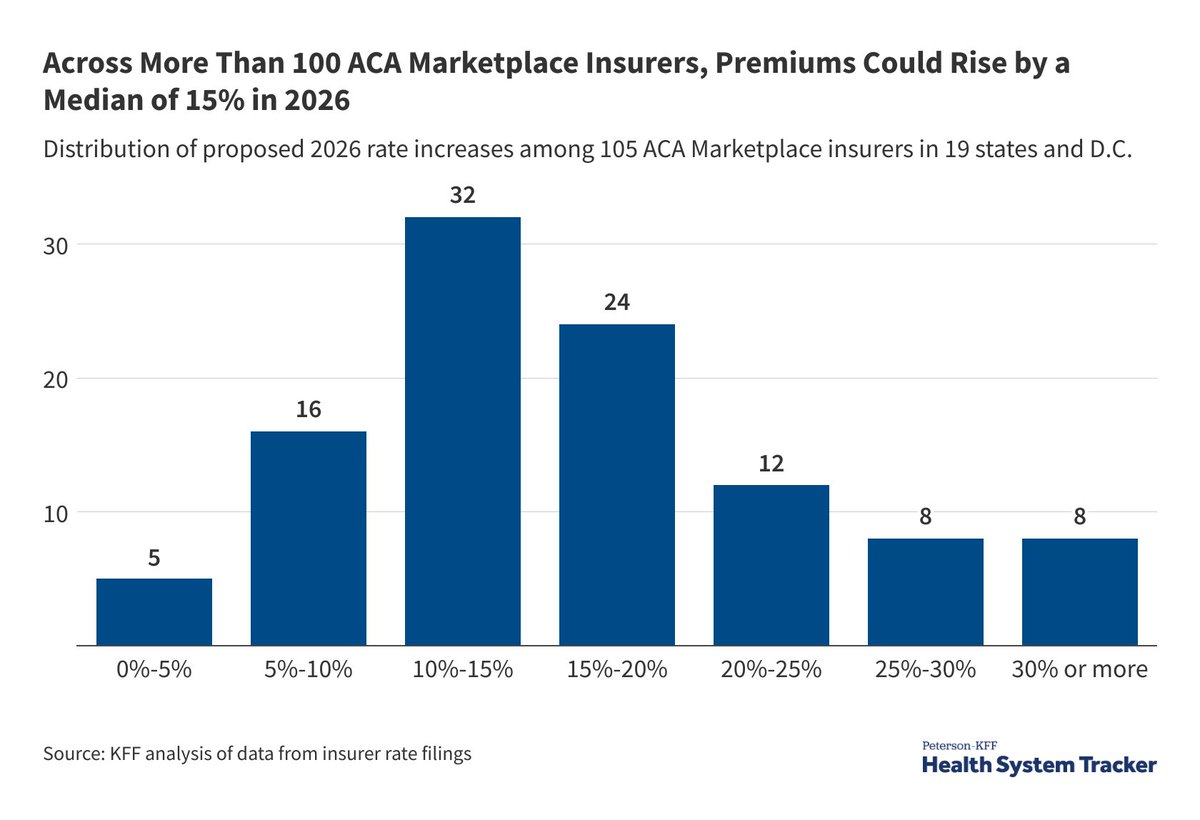
58% of Medicare Part D enrollees (32 million) are in Medicare Advantage drug plans, reflecting rising enrollment in Medicare Advantage overall. Despite a drop in the number of stand-alone PDPs , PDP enrollment held steady at 23 million in 2025. on.kff.org/456Z5pc
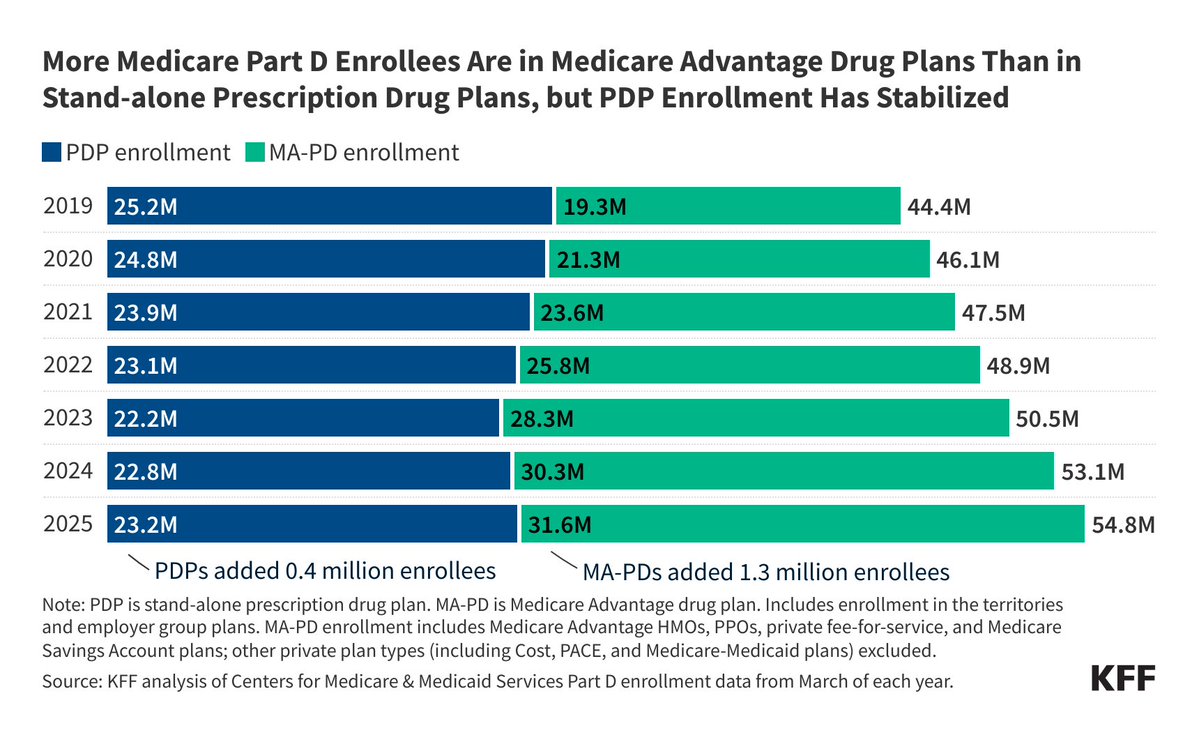
Preliminary ACA Marketplace insurer filings suggest that premiums will see their largest increase in nearly 8 years due to political uncertainty and the expiration of enhanced subsidies. More here: healthsystemtracker.org/brief/individu…
In his latest column, KFF’s @DrewAltman examines the controversial rural hospital grant program that’s in the big Republican tax and spending law. Get the details: on.kff.org/4luSWcc
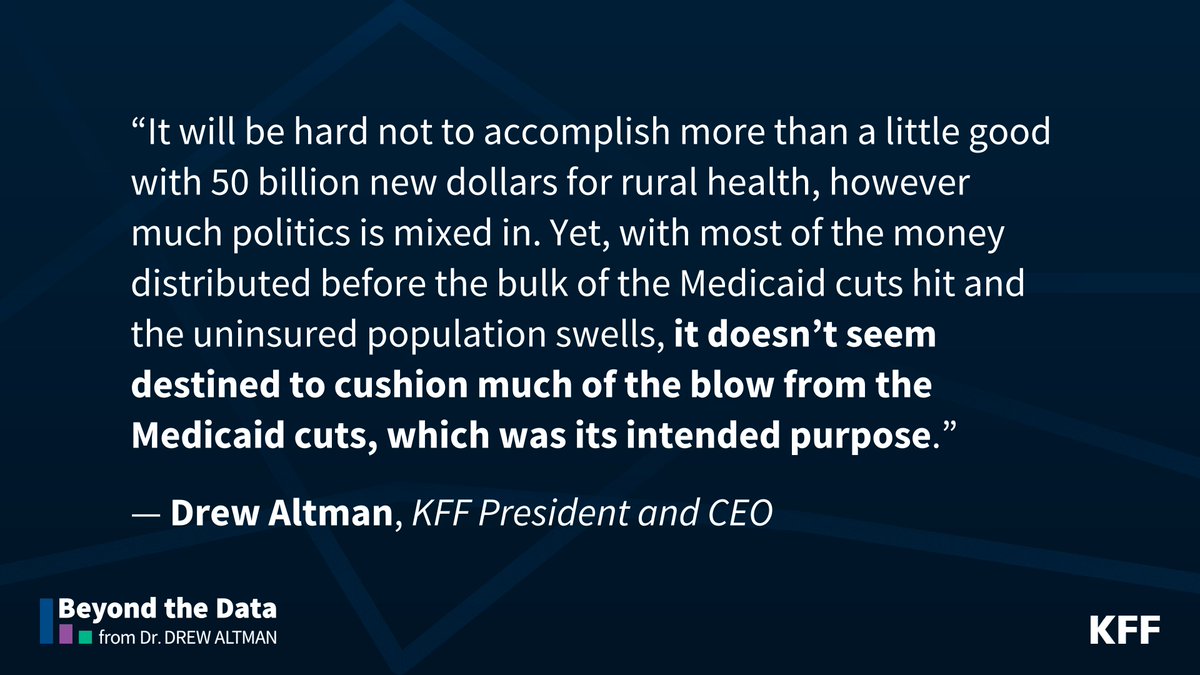
The uncertain future of Medicare’s Part D stand-alone drug plan (PDP) market is especially relevant for rural areas, where nearly 6 in 10 beneficiaries are enrolled in traditional Medicare and PDPs, and where there are fewer Medicare Advantage options. on.kff.org/3GQNt0g
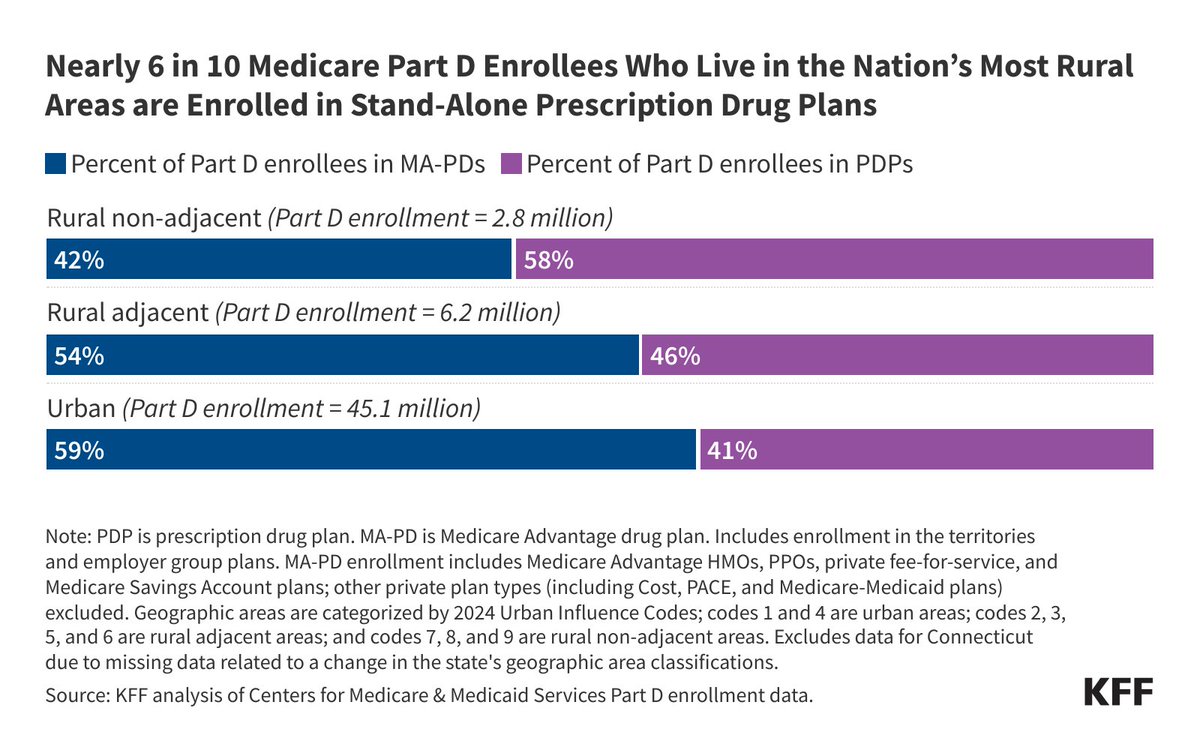
⚡ KFF’s Amaya Diana adds context to yesterday’s CMS announcement to states that they plan to end Medicaid continuous eligibility waivers going forward. #QuickTake on.kff.org/4lU56fb
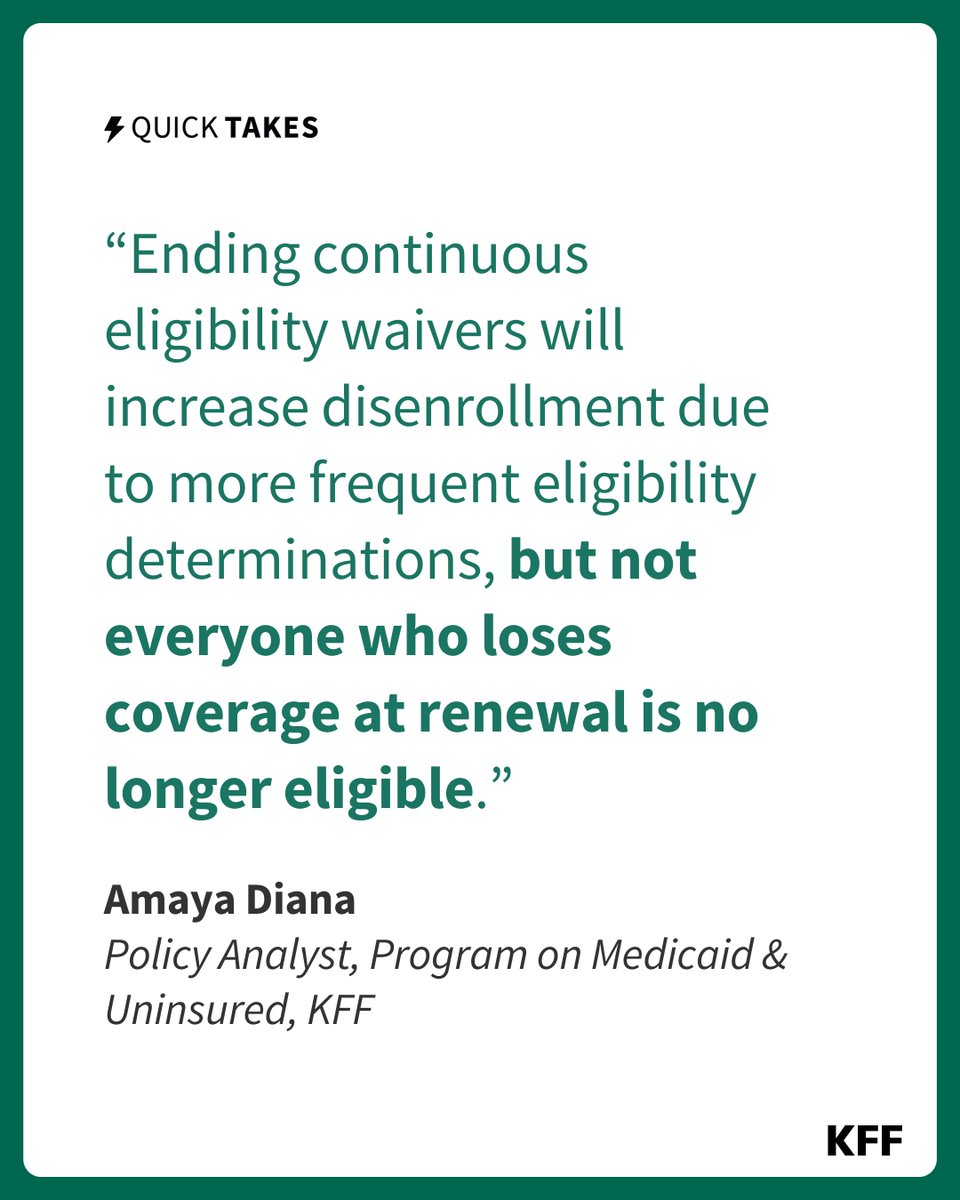
⚡ Amid ongoing pressure on the pharmaceutical industry to lower drug prices, KFF’s Juliette Cubanski writes about Eliquis’s new direct-to-consumer price. While it’s lower than the list price, it’s still higher than Medicare’s negotiated price. #QuickTake on.kff.org/40mc5EU
